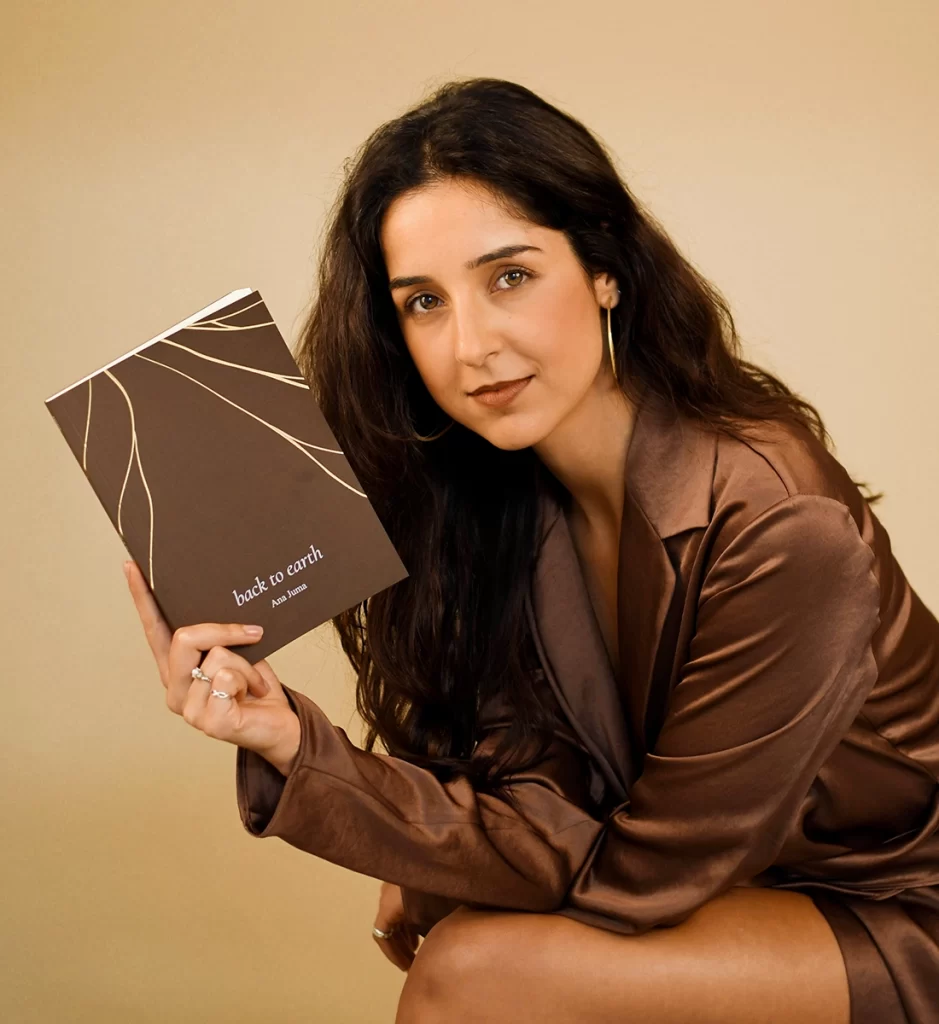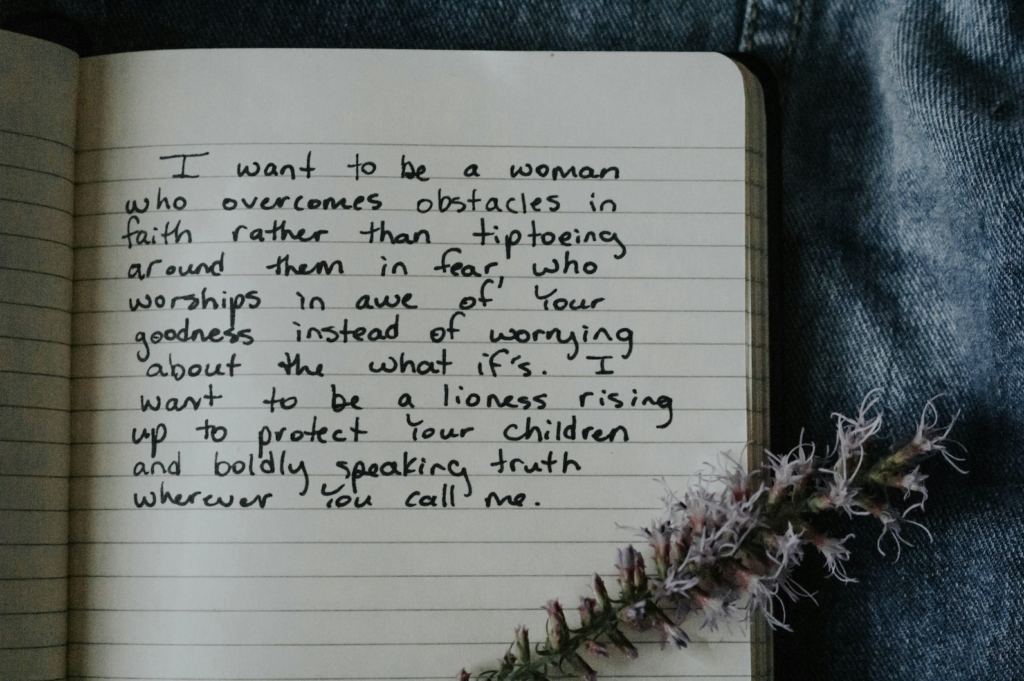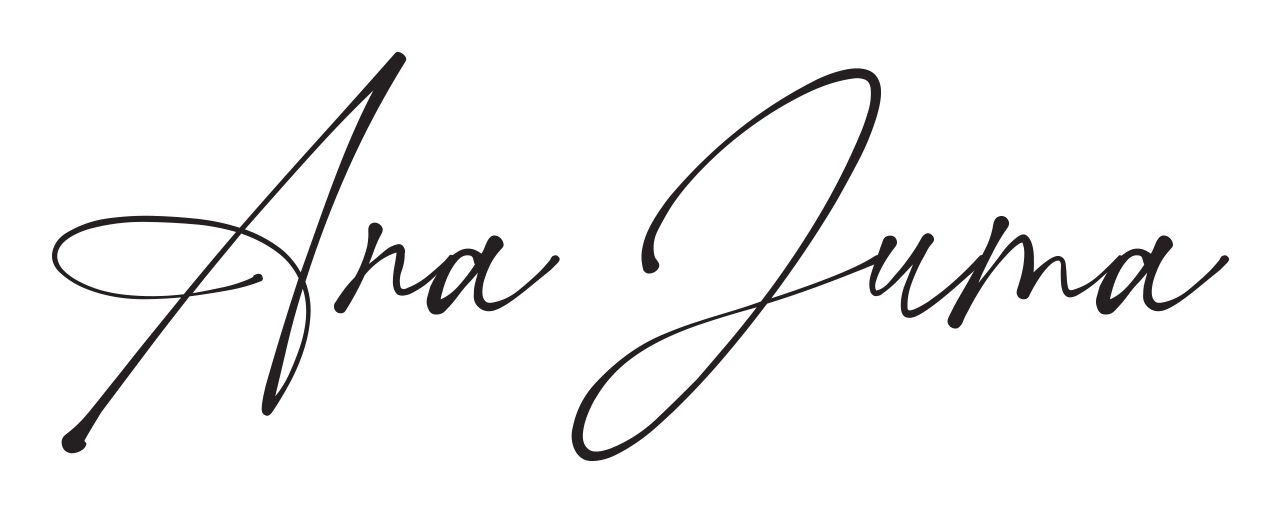
Journal vs Diary Writing: Which One Suits You Best?

About Ana Juma
Keeping a diary from a young age has encouraged me to explore writing as a vehicle of self-discovery and expression. Today, I support individuals nourishing and healing their inner lives through words, so we can find meaning in experiences and co-create a kinder world.
Table of Contents
Watch on Youtube
Pin for later!

Let's Connect

What’s the difference between journal vs diary writing?
This is a question I often receive from you at events and on my YouTube channel. I understand it’s confusing, as there’s a lot of overlap between the two, even though they’re indeed distinct forms of writing.
In this article, we’re going to dive deeper into:
- What is a diary?
- What is a journal?
- What is the difference between journal and diary writing?
- Frequently asked questions
As the famous American novelist and storyteller Louis L’Amour once said, “Start writing no matter what. The water does not flow until the faucet is turned on.”
While both writing forms have their benefits, understanding the difference between journal and diary writing will help you choose the most suitable format tailored to your specific needs and goals. Let’s get started.
What is a Diary?
The short answer is that a diary is a journal, but not all journals are a diary. Diary writing is a type of journal writing.
A diary is a chronological record of one’s thoughts, feelings, behavior, or life experiences.
Coming from the Latin word diarium (meaning daily), it may hold the memory of celebrations, heartbreaks, or simply unforgettable moments that you want to keep for eternity. At its core, the diary remains a timeless vessel for captured moments and information about a particular time.
While it may be your deposit for a personal collection of events, one might also have the desire to share the memories encapsulated in the pages of a notebook. It may serve as an intimate gift to your community, the generations yet to come, or even to the entire world if, one day, you feel called to publish it.
History of Diary Writing
Imagine, in the quiet solitude of candlelight, one medieval princess was pouring her thoughts, dreams, and secrets onto paper. Her diary was not just a record-keeper; it was a trusted confidant, a silent listener to the innermost whispers of the soul.
This creative exercise is not far from the truth. While the earliest known book resembling a diary was found in ancient Egypt (Diary of Merer) dated 4500 years ago, written on papyrus, the modern diary you encounter today has its roots in the Italian society of the 15th century. Dressed in vintage leather covers, diaries were used to record daily events in public life, but, gradually, they inspired rituals in one’s privacy.
The most famous diary of all time is Anne Frank’s The Diary of a Young Girl, revealing the experiences of a young girl in hiding during the Nazi occupation of the Netherlands. Moreover, renowned minds of the latest centuries, such as Frida Kahlo, Franz Kafka, and Leo Tolstoy, used it as an integral part of their creative process.

Types of Diary Writing
Types of diaries are varied, and they may include:
- Autobiographical diary. Today, this is the most common form of keeping a diary, writing down daily thoughts, feelings, and experiences. The earliest known autobiographical diary was written in England by Samuel Pepys. He recorded many events, including The Great Fire of 1666.
- Travel diary. It’s used to document journeys, adventures, and experiences while exploring new places. World travelers record their discoveries in journals. Some of these include The Journals of Lewis and Clark and Darwin’s Journal: The Galapagos. What is more, travel diaries have actually been around since the early Christian pilgrimages in the first century.
- Creative diary. Serving as a space for brainstorming and refining creative work. Artists of all kinds may utilize this type of diary to enhance their creative process. For instance, Leonardo da Vinci filled 5,000 pages of journals with ideas for inventions and clever observations. In 1994, Bill Gates purchased Leonardo da Vinci’s Codex Leicester, a manuscript that dates back to the 16th century, for which he paid $30 million, making it the most expensive book ever sold.
- Health diary. Keeping track of one’s health might include logs of workouts, nutrition, sleep, mood trackers, and overall progress of well-being. A health diary aids in nurturing your motivation to pursue all health-related goals.
- Financial diary. As history goes, diaries for accounting were the first ones ever held. Even to this date, they can be of tremendous help in keeping yourself accountable for your finances, such as by monitoring your earnings, spending, goals, and financial habits.
The need to keep a diary starts within, and usually, people are writing for themselves. However, publicly sharing your diary (on social media or as a book) can become a therapeutic, or even a cathartic practice of vulnerability and courage, often cultivating feelings of relatability and connection to others.
What is a Journal?
The etymology of the word journal comes from the old French word jornel or jour, which means day, similar to diary (daily). Unsurprisingly, the word is also used as a newspaper or magazine that deals with a particular subject or professional activity. For example, in Portuguese, we call the newspaper a “journal” (jornal).
However, when it comes to personal writing, the use of diary writing is intimately connected to the need to record life, whereas journal writing is connected to the human need to reflect and grow.

An early reference to journal writing was written by Roman Emperor Marcus Aurelius in the second half of the 2nd century, known today as Meditations, a series of personal writings where Marcus Aurelius recorded his private notes and ideas about Stoic Philosophy.
By definition, a journal is a private book, a collection of one’s innermost life. Like a fingerprint, journals look similar from the outside, but if you look closely, each person has their own unique expression.
History of Journal Writing
Journal and diary writing were used interchangeably until the 20th century, when journaling began to emerge as a therapeutic practice thanks to American psychotherapist Dr. Ira Progoff, who began teaching his Intensive Journal Workshop method in New York back in the 1960s.
In 1978, he went on to publish his book, At a Journal Workshop, a detailed inquiry into how to access the unconscious mind and evoke your creative abilities through the power of journaling.
In the 1980s and 1990s, social psychologist James W. Pennebaker conducted groundbreaking research on the therapeutic effects of expressive writing. Pennebaker’s studies demonstrated that writing about traumatic experiences can lead to improvements in physical and psychological health. This research helped validate the efficacy of writing therapy and sparked interest in its application across diverse populations and settings.
Furthermore, psychotherapist Kathleen Adams, one of the most prominent voices in the field of therapeutic writing and the founder of the Center for Journal Therapy, published Journal to the Self in 1992. She elaborated on the most efficient methods of enhancing various dimensions of your life through journal writing for personal development.
Types of Journal Writing
Types of journaling are also diverse, depending on the individual’s specific need for growth. They can take the form of:
- Reflective journaling. It is used by individuals to record their thoughts, feelings, and experiences as a means of self-reflection and personal growth. This type of journaling encourages introspection and a deeper understanding of oneself, allowing individuals to gain insights into their emotions, behaviors, and beliefs.
- Dream journaling. It focuses on keeping a record of your nighttime dreams to look for recurring patterns, symbols, themes, or figures. Dreams can hold the key to exploring deeper corners of your psyche and discovering a more authentic side of you hidden in your unconscious mind.
- Gratitude journaling. This type of journaling aids in a mindset shift from the negative to the positive aspects of day-to-day life. Cultivating gratitude not only for the grand gifts of life but also for the little things will help you find an overall greater sense of joy and meaning throughout each day.
- Goal-oriented journaling. It involves setting and tracking personal goals, aspirations, and progress toward achieving them. This type of journaling helps individuals clarify their objectives, develop action plans, and stay accountable for their goals, leading to increased motivation and productivity.
- Bullet journaling. It helps you organize tasks, events, goals, and habits in a customizable format. Moreover, it brings clarity and motivation when your values, passions, aims, and dreams are laid out for you to see clearly.
Rhese are only a few options you might choose from. Beyond these, lie countless other journaling methods, each crafted with precision to cater to unique passions, interests, and dreams.
What Is the Difference Between a Journal and a Diary?
Recapping, all diaries are journals, but not all journals are diaries. Diary writing is a form of journal writing, among others.

Simply put, a diary serves as a chronological accounting and documentation of one’s life, while a journal emphasizes the different aspects of personal growth, from self-reflection to goal-setting.
Therefore, the key distinction lies in the intention behind the practice: while diary-keeping is about capturing life as it unfolds, journaling is about actively engaging and designing life as a practice of self-development.
Here is a side-by-side comparison of the two to clear things out even more:
TABLE
Frequently Asked Questions
Now that we dispersed the journal vs diary writing confusion, here are a few more curiosities you might find yourself pondering about.
1. What type of person keeps a journal or a diary?
Anyone with a desire for self-reflection, personal growth, or a means of recording their experiences can keep a journal or diary. There is no singular “type” of person who engages in this practice — it’s open to all, regardless of age, background, or personality.
Whether seeking solace in self-expression, striving for clarity in thoughts, or simply preserving memories, journaling and diary-keeping offer a versatile outlet for anyone willing to put pen to paper.
2. Which one is better for you, journal or diary?
If you seek a straightforward chronicle of daily events and emotions, a diary may suit you best. On the other hand, if you desire deeper introspection, personal growth, and creative exploration, a journal might be more fitting.
Consider what you hope to achieve through your writing — whether it’s preserving memories, processing emotions, or fostering self-discovery — and choose the method that aligns most closely with your goals and intentions.
3. What are the benefits of a diary or a journal?
Both diaries and journals, by their nature of regular writing, offer numerous benefits. Whether through recording daily events in a diary or engaging in deeper introspection in a journal, the act of writing fosters personal growth, creativity, and self-awareness.
In fact, studies have shown that journaling may lead to more self-compassion, a better understanding of emotions, and a more reasonable process of making decisions. From reliving moments to overcoming life’s hardships, each stroke of the pen brings you closer to yourself.
Write Your Story

Grab your favorite notebook and let the ink flow because, in the act of writing, you’ll find not just words, but a piece of yourself. Sometimes you may go deeper, and other times you may just find a slight, brief moment of magic and wonder.
In the end, it’s not about a timeless journal vs diary writing debate; it’s about the realization that life is precious and it’s in your hands to write the story you wish to read. In between the pages of your journal lies the power to shape your destiny, sculpt your truth, and embark on a journey of self-discovery.
And if you’d like a little more support and guidance on your journey, I prepared a 7-day beginner’s guide to journaling. All you have to do is leave your email address below and enjoy the first steps to an exciting path of getting to know yourself better. ♡
7-Day Free Journaling Journey
Keeping a journal for personal growth is one of the most powerful, yet simple (and affordable) rituals you can cultivate. Join me to receive videos and printable content to help you start writing a journal today.

Hello, I'm Juma
Keeping a diary from a young age has encouraged me to explore writing as a vehicle of self-discovery and expression. Today, I support individuals nourishing and healing their inner lives through words, so we can find meaning in experiences and co-create a kinder world.
Pin for later!

